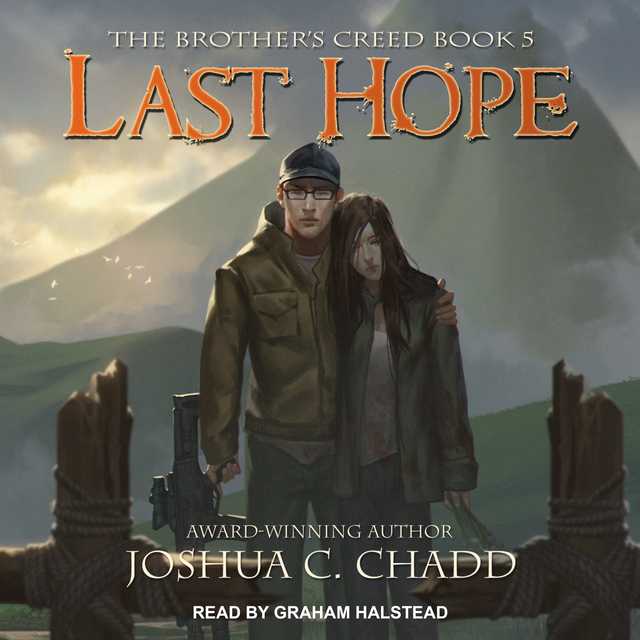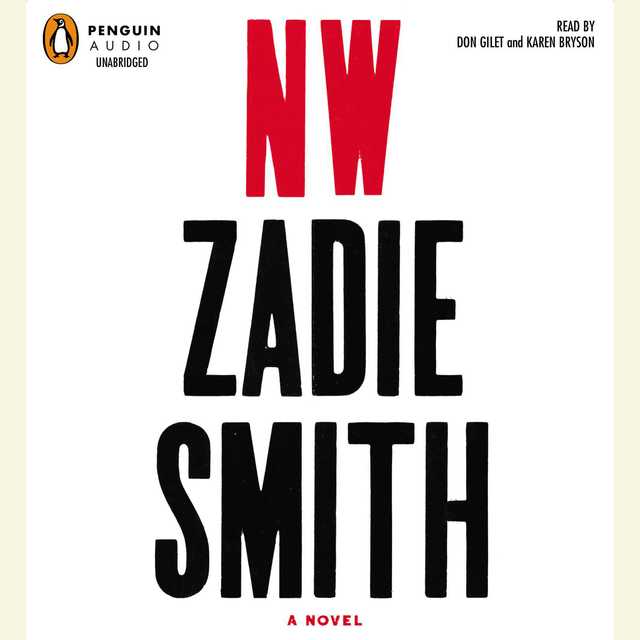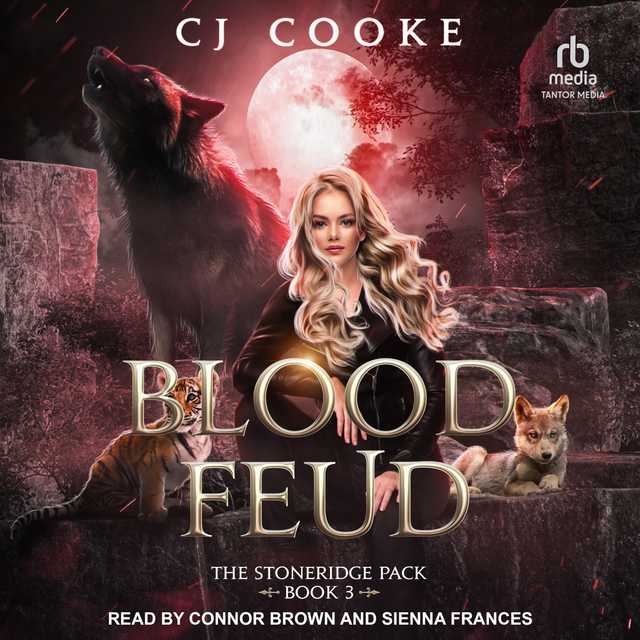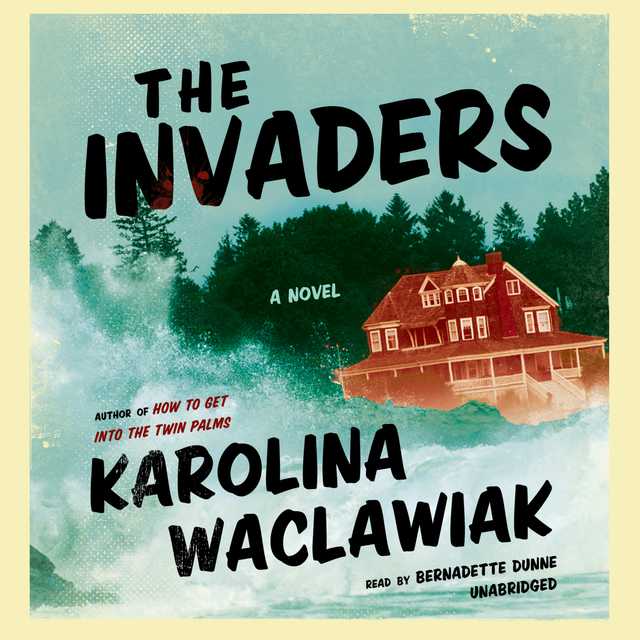Chicago Audiobook Summary
A big-shouldered, big-trouble thriller set in mobbed-up 1920s Chicago–a city where some people knew too much, and where everyone should have known better–by the Oscar-nominated screenwriter of The Untouchables and Pulitzer Prize-winning playwright of Glengarry Glen Ross.
Mike Hodge–veteran of the Great War, big shot of the Chicago Tribune, medium fry–probably shouldn’t have fallen in love with Annie Walsh. Then, again, maybe the man who killed Annie Walsh have known better than to trifle with Mike Hodge.
In Chicago, David Mamet has created a bracing, kaleidoscopic tale that roars through the Windy City’s underground on its way to a thunderclap of a conclusion. Here is not only his first novel in more than two decades, but the book he has been building to for his whole career. Mixing some of his most brilliant fictional creations with actual figures of the era, suffused with trademark “Mamet Speak,” richness of voice, pace, and brio, and exploring–as no other writer can–questions of honor, deceit, revenge, and devotion, Chicago is that rarest of literary creations: a book that combines spectacular elegance of craft with a kinetic wallop as fierce as the February wind gusting off Lake Michigan.
Other Top Audiobooks
Chicago Audiobook Narrator
Jim Frangione is the narrator of Chicago audiobook that was written by David Mamet
David Mamet is one of the foremost American playwrights. He has won a Pulitzer prize and received Tony nominations for his plays, Glengarry Glen Ross and Speed-the-Plow. His screenwriting credits include The Verdict and The Untouchables.
About the Author(s) of Chicago
David Mamet is the author of Chicago
More From the Same
- Author : David Mamet
- Recessional
- The Secret Knowledge
- Publisher : HarperAudio
- Abraham
- American Gods [TV Tie-In]
- Dead Ringer
- House of Sand and Fog
- Prey
Chicago Full Details
| Narrator | Jim Frangione |
| Length | 8 hours 51 minutes |
| Author | David Mamet |
| Category | |
| Publisher | HarperAudio |
| Release date | February 27, 2018 |
| ISBN | 9780062842985 |
Additional info
The publisher of the Chicago is HarperAudio. The imprint is HarperAudio. It is supplied by HarperAudio. The ISBN-13 is 9780062842985.
Global Availability
This book is only available in the United States.
Goodreads Reviews
Corey
February 03, 2018
It's gangsters. It's Mamet. What else do you wanna know?Review to come at memphisflyer.com
Richard
July 11, 2021
It took me a while to fall into the rhythm of this novel, but once I did it was smooth sailing. It's about a newspaper reporter trying to get to the bottom of a murder, but the plot is incidental, the minimal period detail incidental, and the fact that the characters speak more like modern Mamet characters than men and women of the 1930s is incidental. What's important here is the dialog, as you'd expect, and what great dialog it is. Mamet is the king of a certain kind of street poetry; hell, he INVENTED a certain kind of street poetry. My first encounter with his work was reading American Buffalo. It changed the way I thought about narrative and the possibilities of dialog, and I've been an acolyte ever since. Tip: When I found myself getting a little lost in the looping verbal interplay during some scenes in the book, it helped to read the lines aloud, as if it were a play. The tangles shook right out.
Joseph
December 30, 2017
I won a advance reader's copy of this novel on the Goodreads site. The title of this novel was a bit misleading in that it had more to do with newspaper reporting than it had to do with prohibition. The characters were interesting and original and the plot was engrossing. The problem I had with the novel was the vocabulary. I am not an extremely educated man and do not enjoy having to look up a word or two on every page in the dictionary. I realize this is the style of prose Mr. Mamet uses and looking at his success, it definitely works for him. However,speaking for myself, it seemed to take away from the story. In my humble opinion, simple is better and that cost David Mamet my 5 star rating.
Lee
December 09, 2020
Given that I picked this novel up in the thrift store for a mere dollar, and then saw that most people here on Goodreads were giving it only a star or two, perhaps my expectations were lowered, but I rather enjoyed this postmodern noir-ish gangster novel from David Mamet. Although I've seen Mamet texts performed in the theater and on the silver screen, this was the first I'd read on the page. The style is all his, and the dialogue here is excellent, if--also perhaps because of the 1920's setting--a tad reminiscent of early Hemingway. But then that's why I dubbed the novel postmodern: seems like it's a fairly original story, but one cobbled together, anachronistically, a century after the historical moment described, out of Hemingway's style, a bit of Nathanael West's Miss Lonelyhearts and other sassy and cynical books and films about newspapermen, and what we've seen lately in Peakey Blinders and Boardwalk Empire, that is to say, the socio-historical reading of 20's gangster-ism as a combination of returning WWI vets with PTSD and an addiction to violence coupled with the opportunity to crime, fast money, and social mobility provided by the Volstead Act.It was a pretty quick and enjoyable read, if not in the brilliantly original or over-the-top masterpiece category. I see the word "meandering" popping up in reviews here, insinuating that the novel is incompetently structured, but I found the plot through-line pretty slick, and I also enjoyed the narrative detours into human nature, gun lore, police corruption (what noir doesn't scream not only to defund the police but to never have funded this institutionalized form of crime in the first place), race relations, whore house operations, etc. etc. My only criticism, really, is that a couple of chapters seemed a bit out of place, giving me a twinge that they were added later or shuffled around at some point, which took me out of the narrative flow and got me thinking about the workings of the novel qua novel. Seems like it was chapter three or four struck me as an opening chapter--thus I thought that the ones that had come before had been added as an afterthought. These tracks could have been covered better. other than that, I enjoyed the heck out of it. It's at least a million times better than that pseudo-existential noir crap turned out by Paul Auster back in the day--that stuff really stank.
Bookreporter.com
December 27, 2018
As the whole world knows, when Hollywood was filming Glengarry Glen Ross, there was a concern that the stage play wasn’t long enough to be a decent screenplay. So David Mamet added a scene to the screenplay, the famous scene where Alec Baldwin stomps into the story for a few minutes and berates the salesmen who aren’t Al Pacino. “Coffee is for closers,” he shouts. “Always be closing.” And, this being a Mamet project, a few words that I can’t include on a family book review website.This is “snappy dialogue,” you understand, and Glengarry Glen Ross and Mamet’s other films are chockful of it. In the Miller’s Crossing screenplay, Joel and Ethan Coen note that the snappy dialogue tends to dry up “once a guy starts soiling his union suit,” but that’s never been a problem in Mamet’s universe. And CHICAGO, God bless it, is a veritable fountain of snappy dialogue, flowing from his pen as from a dark and corrupted stream.The reader may come to this novel expecting a story, and said reader will not be overly disappointed. The protagonist, Mike Hodge, is a scrappy Chicago Tribune reporter in the age of Al Capone, a veteran of World War I air battles, and hangs out in disreputable bars and reputable whorehouses. It’s a man’s life in a man’s world, and Hodge makes his lonely way through it until he is surprised by love --- and then devastated by its loss.That is the story, such as it is, a sad tale of loss and revenge, and it hardly matters. CHICAGO is not a typical historical mystery; it is more about human motivations than solving a crime. And it doesn’t rely a great deal on crime-solving technique; Hodge spends most of his investigation bumbling around, following up on leads, waiting for people to explain what is really going on. And none of it matters.Despite its evocative cover of a gangster with a Thompson gun, CHICAGO is high-grade literary fiction, more about characters and worldviews than crime and corruption. More pearls of wisdom flash by than bullets. And if the wisdom is hard-edged, bitter and cynical, perhaps all the better.The real question that the book has to address from a marketing perspective is whether or not it will be able to win readership from outside of Mamet’s fan base. I have followed his career ever since a college professor recommended House of Games, which is a fantastic character study wrapped around a deeply twisty and satisfying story. But if you’re not in the market for rapid-fire profane dialogue, will you be won over?It is something of a close question, but the answer is “probably not.” The difficulty in dealing with CHICAGO as a reading experience is not so much with Hodge, but with the people he talks to. There is another reporter who is more or less his mirror image, an African-American madam in a comfortable brothel, and a collection of crooked cops and honest gangsters. There isn’t a character in the book outside of Hodge who couldn’t be filled by Central Casting without a moment’s consideration. (And I kept hearing Hodge’s voice in the same Irish lilt that Gabriel Byrne used in the aforementioned Miller’s Crossing, if that gives you an idea.) And the characters generally play true to type; there isn’t one moment when any of them surprise you, or themselves.But neither the story nor the characters are the real point. The real point is Mamet himself, his skill, his ability to wring evocative prose out of the overworked, sterile soil of the hard-boiled crime novel. His understanding of the way people speak to each other, when to deliver the smart retort or the impassioned diatribe. This is a novel of big-shouldered conversations, the rough and tumble of speech, what people say and do not say, and how it all works together.Hodge’s fellow reporter remarks at one point that he has stopped reading a certain author because of stark, staring envy at the writer’s prowess. This book evokes those same feelings for anyone who tries to write dialogue --- making it a teeth-grinding experience for some. But for the rest of us, who revel in snappy dialogue, CHICAGO is an unalloyed joy.Reviewed by Curtis Edmonds
Lee
May 25, 2018
Slow to start but once into the thick of the story it becomes a quick and good read
Steven
December 23, 2019
Ever since watching the 2004 film SPARTAN, I have been a fan of David Mamet. He turns dialogue--particularly profane dialogue--into an art form. His rhythm and cadence have had an influence on my own work, and I frequently cite Mametian dialogue as a part of my development as an author.So, when I saw that Mamet had written a fictional novel called CHICAGO, I didn't even bother looking at the synopsis. I picked it up. From the cover and title, I gathered that it took place in Mamet's hometown of Chicago sometime during Prohibition. A gangster novel with Mamet dialogue? Guaranteed win, right?Well...mostly yes, but a little no.I'll start with the bad first: Mametian prose is nowhere in the same class as Mametian dialogue. It honestly gets a little stuffy at times. I prefer my prose to be lean and to the chase, whereas Mametian prose tends to wander a bit. This can be reflected in the negative reviews I skimmed before writing my own review. It's not terrible prose, but I can understand why some would think that when holding it up next to the dialogue that won Mamet a Pulitzer and Academy Award nominations.I also found that the titular "girl" Annie Walsh was almost something of a MacGuffin. I definitely find it a narrative mistake not to flesh her out. She becomes nothing more than a catalyst to launch the hero, WWI pilot-turned-Chicago journo Mike Hodge, into action.With that said...what the book lacks in top-notch prose, it makes up for in golden dialogue, in spades. Lovers of Mametian dialogue will recognize all the trademarks: the alternating lines of eloquently verbose and rapid-fire profane back-and-forth exchanges. I kept turning the page, eagerly awaiting the next piece of dialogue.The plot was also solid. I wasn't 100% sure of who committed the crime until it was stated explicitly. Some felt the plot was a little convoluted; I found it to be uniquely Mametian. It's one of those deals where either you love it or you hate it. I fall into the former camp.I have to say that my favorite character was Peekaboo, the "high yellow" madam that runs the Ace of Spaces bordello. Her exchanges with Hodge were nothing short of excellent.I also found it to be educational on the period. Granted, I didn't fact check it, but what I know of the time period seemed to jive with what I was reading on the page, and nothing stood out as especially ludicrous. Then again, on that topic, one may wish to consult a subject matter expert.All in all, if you're a fan primarily of Mamet's work and secondarily of the time period, I recommend CHICAGO.
John
May 18, 2018
David Mamet's publisher perhaps did him no favor with the title and cover art of Chicago: A Novel of Prohibition. This story is a murder mystery involving two newspaper reporters in 1920s Chicago with some appearances of mob characters. I see many GoodReads reviews express disappointment this is not the shoot-em-up action thriller of Al Capone and Bugsy Moran they envisioned. Playwright Mamet is a master of dialogue and this novel is overwhelmingly discourse. I enjoyed the style and characterization, yet, readers who want lots of violent action will be let down. They may find the character development slows the pace. Personally, I enjoyed this tale of Mike Hodge's fight against guilt and depression in his search for the man who murdered his lover. Be forewarned if your search is for Chicago gangster mayhem like the Valentine's Day Massacre because it's not here.
William
February 17, 2020
Having spend a great deal of time researching the prohibition era for my own novel I find so much of this novel to be accurate and in the style of the time which is no easy task. Pining over the war was common. Men who could not forget the war turned to drink which is what pushed prohibition into existence. Of course it failed and created the mob. I the work was well researched and realistic. Now it was dialogue heavy. As a playwright by profession Mamet likely tells many stories through conversation and even lacking tags each characters discussion moves the story forward. There are parts where the conversation does slow a bit and could be cut back to move the plot forward a bit faster. Still I found the story interesting and worth a read by anyone interested in the time period.
Booked
March 20, 2018
Hear the full review: http://www.bookedpodcast.com/?p=5658
David
March 06, 2018
A very good novel about corruption and revenge, told, since Mamet is first a playwright, almost entirely in dialogue and in scenes. The reporter Mike’s girl gets killed and he chases the who and why, uncovering a multilevel plot to steal guns by the IRA. The plot is the hook on which Mamet hangs subjects ranging from newspaper work, grief to the sociology of the major Chicago crime families. Black society is counterpoint to the whites: Italians, Irish and Jews. A black madam has the great line, ‘Revenge is like lobster. It’s good hot or cold.’ Revenge is served. I’d have given 5stars but its a little too self indulgent: Mamet falls in love with his voice too easily and let’s it run too long.PS: an amazon reviewer notes that this is misadvertised as a Chicago prohibition era shoot em up and several customers are unhappy that it is actually literary fiction - hence the low reviews. This is an excellent historical novel, as good as Doctorow or the more recent books by Jennifer Egan or Francis Spufford.
Richard
July 16, 2018
Mamet’s best novel, and the equal of his best plays save Glengarry Gllen Ross, and Sexual Perversity in Chicago. Good characterization of interwar Chicago years, and the newspaper characters.
Stephen
January 19, 2018
I won this book on goodreads.com!First of all, I had to look up quite a few meanings of words. LOL.This novel is set in 1924 Chicago during Prohibition. It is eloquent, fascinating and rip-snorting. Mike Hodge is a reporter for the Chicago Tribune who served as an aviator in France during WWI.He co
Frequently asked questions
Listening to audiobooks not only easy, it is also very convenient. You can listen to audiobooks on almost every device. From your laptop to your smart phone or even a smart speaker like Apple HomePod or even Alexa. Here’s how you can get started listening to audiobooks.
- 1. Download your favorite audiobook app such as Speechify.
- 2. Sign up for an account.
- 3. Browse the library for the best audiobooks and select the first one for free
- 4. Download the audiobook file to your device
- 5. Open the Speechify audiobook app and select the audiobook you want to listen to.
- 6. Adjust the playback speed and other settings to your preference.
- 7. Press play and enjoy!
While you can listen to the bestsellers on almost any device, and preferences may vary, generally smart phones are offer the most convenience factor. You could be working out, grocery shopping, or even watching your dog in the dog park on a Saturday morning.
However, most audiobook apps work across multiple devices so you can pick up that riveting new Stephen King book you started at the dog park, back on your laptop when you get back home.
Speechify is one of the best apps for audiobooks. The pricing structure is the most competitive in the market and the app is easy to use. It features the best sellers and award winning authors. Listen to your favorite books or discover new ones and listen to real voice actors read to you. Getting started is easy, the first book is free.
Research showcasing the brain health benefits of reading on a regular basis is wide-ranging and undeniable. However, research comparing the benefits of reading vs listening is much more sparse. According to professor of psychology and author Dr. Kristen Willeumier, though, there is good reason to believe that the reading experience provided by audiobooks offers many of the same brain benefits as reading a physical book.
Audiobooks are recordings of books that are read aloud by a professional voice actor. The recordings are typically available for purchase and download in digital formats such as MP3, WMA, or AAC. They can also be streamed from online services like Speechify, Audible, AppleBooks, or Spotify.
You simply download the app onto your smart phone, create your account, and in Speechify, you can choose your first book, from our vast library of best-sellers and classics, to read for free.
Audiobooks, like real books can add up over time. Here’s where you can listen to audiobooks for free. Speechify let’s you read your first best seller for free. Apart from that, we have a vast selection of free audiobooks that you can enjoy. Get the same rich experience no matter if the book was free or not.
It depends. Yes, there are free audiobooks and paid audiobooks. Speechify offers a blend of both!
It varies. The easiest way depends on a few things. The app and service you use, which device, and platform. Speechify is the easiest way to listen to audiobooks. Downloading the app is quick. It is not a large app and does not eat up space on your iPhone or Android device.
Listening to audiobooks on your smart phone, with Speechify, is the easiest way to listen to audiobooks.












![Forbidden City [Dramatized Adaptation]](https://speechify.com/audiobooks/wp-content/uploads/sites/29/2023/06/pr_eaudio_9781648796623_640px.jpg)

















